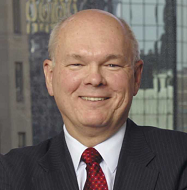 Interview With The Author: Craig Wruck
Interview With The Author: Craig Wruck
Former Vice President of University Advancement
Humboldt State University (Arcata, California)
In what ways might a Registry interim advancement officer most effectively help an institution to raise funds during a time such as this?
Philanthropy is a very personal choice and the act of making a charitable contribution is optional behavior. In ordinary times this puts Interim Advancement Officers in a weakened position because they will not be there long enough to develop personal relationships with donors, and there’s little disincentive for a donor who chooses to procrastinate and wait for the permanent Advancement Officer. Attempting to overcome these obstacles by force will consume an inordinate amount of effort, is unlikely to produce results, and could even do damage to institutional reputation and relationships. Better that Interim Advancement Officers focus on ensuring that the fundamentals – convincing and cohesive case, systems and procedures, consistent fundraising discipline – are in place and to help build, or repair if necessary, on-campus trust in the Advancement Office. This is not to say that Interim Advancement Officers will not raise money, they will, but it is unrealistic to expect that they can produce dramatically improved fundraising results during the interim period.
Are there ways that an interim senior development officer might be more effective than a permanent employee?
Yes. There is an internal momentum surrounding every Advancement Office. Sometimes there is a lack of drive or urgency due to years of neglect or inattention. In other cases Advancement momentum has stalled or deflected as a consequence of failed leadership from the previous Advancement Officer. In every case, Interim Advancement Officers are in a unique position to bring their knowledge and experience from other institutions to bear They bring no vested interest in the status quo, which puts them in a unique position to ask questions, make recommendations, and, with the support of institutional leadership, implement changes, many of which would burden the incoming permanent Advancement Officer.
When the Pandemic abates from its current level of intensity, how might planned giving be different in the new normal?
Over the years, planned giving officers have struggled with the best way to approach the topic of death and just how explicit to be during donor conversations. You might be surprised how often donors begin by saying something like, “Well, if I die I want these things to happen… .” And yet, a recent study by the Giving USA Foundation found that planned giving donors are, overwhelmingly, not uncomfortable discussing their own mortality. Perhaps one of the outcomes of the pandemic will be a new openness on the part of donors to discuss a well-planned gift that will not be made until after their lifetime.
What is the most important takeaway from your book that you would cite for a Registry interim starting this fall?
Be sensitive to the stresses the institution is undergoing. Organizations are confronting unprecedented challenges and leadership is being forced to make impossibly difficult choices. I am convinced that those institutions that manage to preserve and enhance donor relationships will be much better positioned to thrive, and I firmly believe that this is not a time for institutions to reduce or postpone their Advancement efforts. Nevertheless, this is also not the time for Advancement to advocate for expanded resources. I believe that the institution ought to determine the level of investment it can make in Advancement, and the Interim Advancement Officer should lay the foundation to build an Advancement program to suit the institution within the resources available.
HIRE AN INTERIM
Searching for an Interim?
Please contact us for more information.

